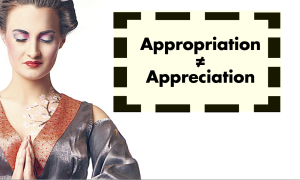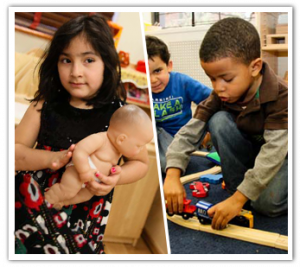We’ve all been there. Whether it’s a self-proclaimed “male feminist” making sex-shaming comments on a Facebook post or the “LGBTQIA-friendly” straight ally unwittingly making transphobic slurs at a party – the misguided ally is nearly impossible to avoid.
It’s not that the misguided ally is a bad person. We know they don’t want to hurt us. But they do.
And then, often times, they hurt us even more by choosing to blame to us for whatever awkward experience ensues as opposed to taking accountability.
Though these instances are irritating, their irritation is nuanced. They often facilitate in safer spaces becoming unsafe, which, in turn, expedites the increased formation of identity-exclusive spaces.
And while having spaces just for marginalized people themselves (spaces specifically for people of color, or trans folks, or for women-identified people) isn’t inherently wrong, they often end up being centered around healing from the harmful microaggressions of “allies.”
Many people who choose to only engage with those who share their identities are criticized for their exclusivity and for not making space for allies, but space for allies can only be created when those allies are actually doing the work of allyship rather than speaking over and taking space over the people they aim to ally with.
Until misguided allies learn the error in their ways, the true work of activism and allyship cannot be done.
And sadly, the process of getting there often looks like marginalized people, once again, doing the difficult labor of initiating some hard conversations.
There’s no denying that these conversations are annoying at best, and harmful (especially) to the marginalized person at worst. However, there are so many ways to react to these interactions, and so many factors to consider when deciding that reaction.
We can ignore the comments, even though that often feels disingenuous.
We can respond, but the tone of how we do so varies even more depending on our mood, energy levels, the relationship between the activist and ally and the seriousness of the comments made.
Beyond that, we’re far more likely to respond compassionately to friends or people we know and like than we are to stranger on the street, or worse – strangers on Facebook.
Fortunately, there are a few activist communication hacks for dealing with the misguided allies we’ll all inevitably encounter.
1. Meet Them Where They’re At
It’s easy to forget that everyone is in different stages of consciousness-raising, especially when those around you have similar values, principles, and education.
Even if someone has read the same theoretical texts or attends similar protests or organizing events, their stances and learning processes are likely to be vastly different from yours. Remember that we all approach activism differently.
Rather than expect them to know what you know or to do homework without any guidance, try to engage them wherever they’re at.
Imagine, for example, that you’re sharing activist space with a young cis man who has been involved in socialist organizing, but is new to feminist circles. It wouldn’t be surprising for this person to unintentionally make a misogynist comment.
If you feel comfortable enough to do so, this would be the perfect opportunity to reach out, using rhetoric with which he may be familiar, to discuss what he said and why it was offensive.
This exercise in patience and tone-shifting won’t only help him become a better ally – it can help you become a better and more effective activist.
It’s important to remember, at this stage and every other outlined here, that you need to check in with yourself to make sure you feel comfortable and have enough energy to engage this person.
Once, during a panel on women in Islam I attended as an undergrad, I asked one of the panelists if they ever get tired of explaining their beliefs to people.
They admitted that while they feel proud to be ambassadors for a peaceful Islam, there are times that they don’t feel they have enough energy and that there are times when the ignorance they encounter hurts them.
I learned an important lesson that day: It’s okay to disengage for any reason, especially if interacting is going to be harmful for you.
2. Remember Your Pre-Activist or Baby Activist Days
Whether you’ve been involved in anti-oppression organizing for years or have only recently become an anti-oppression advocate, it’s easy to forget or try to diminish beliefs held before coming to current worldviews.
Who wouldn’t want to forget the times they’d made ableist slurs or told misogynist jokes?
We all began somewhere, and nobody is innocent of oppressive remarks or behaviors in a system of kyriarchy – an important thing to keep in mind when someone who wants to be an ally screws up.
Think back to the time before you were involved in activism. Try to remember the ignorant or downright offensive things you likely said and did. More often than not, people just don’t know better – which is an explanation, not an excuse.
This practice allows for empathy when dealing with someone who might be new to your type of activism.
3. Resist the Urge to Apologize and/or Respond in Anger
There are two common ways that people respond to an ally, particularly one from a more privileged group, when attempting to call them out on their ignorance.
One of those ways is being overly-apologetic.
This happens when you speak without confidence or apologize to the (often more privileged) person you’re attempting to engage, as though the statement you’re making is more offensive than the actual actions that initiated the whole process.
This isn’t just ineffective – it echoes the privilege dynamics that you are likely attempting to work against.
Often, people in oppressed positions feel that they have to apologize as a means of softening their point so as not to offend or anger their (often white, cisgender, and male) audience.
Speaking with confidence and without apology doesn’t just make your statements stronger – it levels the playing field between you and the privileged person who wants to be your ally.
The other common response is to get angry at the person who made the ignorant or offensive comment.
This reaction is commonplace and understandable. If nothing else, it gets really, really tiresome dealing with oppression 24/7 – and it’s often easy to lash out at, say, the white person who refuses to understand why wearing “Native American headdresses” is problematic and appropriative.
Anger has its uses, and it is a completely valid mode of expression when you are an oppressed person facing further oppression – but when dealing with folks who earnestly want to learn and help, it often ends up driving them away.
Alternative responses – such as directing them to resources about their problematic beliefs – not only helps the person who made the offensive or derailing comments, but also those who are aiming to call them out.
As the inimitable Audre Lorde famously stated, anger is a useful tool in activism – but often, when anger is directed at other, newer allies, it can be harmful to all parties involved.
That said, it’s important to distinguish between reactions and emotions.
It’s completely acceptable to feel anger and frustration when dealing with ignorance, particularly the type that comes with privilege.
Whether it’s a cis male activist using common misogynistic slurs or a white person echoing stereotypical tropes about people of color, irritation, exasperation, and outrage are normal emotions to feel. The difference lies in how you choose to channel those feelings.
There isn’t fault in reacting emotionally – I often tire of being marginalized and end up angry – but taking a moment before responding, while also taking stock of my feelings, often feels better on my end, much less for those to whom I’m responding.
4. Only Educate When You Choose To
As an activist, you have the choice to educate others on your chosen issues. In many situations, taking the role of educator is a positive choice that leaves both “teacher” and “pupil” feeling more empowered and knowledgeable.
But in many other cases, activists are placed in the role of educator or “speaker” for their oppressed group, usually without their consent.
There will, almost without fail, be situations where you are asked to educate others. When you find yourself at that precipice, it’s best to check in with yourself to see if you have the energy, the resources, and – most importantly – the desire to educate.
While the misguided ally with whom you’re speaking might initially come from a place of innocent ignorance, it’s not uncommon for privileged folks new to activism to try to force a marginalized person to educate them – even after they’ve articulated their boundaries.
This not only creates uneven power dynamics within our activist circles, but it also often violates safe spaces in the process.
Many members of oppressed or marginalized groups have experienced being asked to be the “speaker” of their group.
I, as an Arab-American, have been asked very specific questions about Islam and the Middle East, despite the fact that I was born and raised in North Carolina and have been Unitarian Universalist for most of my life.
When I know the answer to the question, and if I feel up to it, I’ll answer as best as I can. But I attempt to make it understood that I’m giving my individual viewpoint and that the answers I give are a privilege rather than a requirement.
When I don’t feel up to it, I’ve learned to not make excuses. I’ve learned to be firm, but kind, while explaining that it’s not my job to educate and that most of what I’ve learned has come from free and readily available sources online and in libraries.
5. Pick Your Battles
There’s no doubt that activism is hard work. Fighting against institutional, ingrained oppressions is an uphill battle – which is why being choosy with confrontations is a necessary skill.
When I was in college, there was a long, drawn-out confrontation between my school’s newly-founded Feminist Collective and our Students for a Democratic Society chapter based on some admittedly misguided statements made by cis male members of SDS at an early Feminist Collective meeting.
A contentious dialogue ensued between various members from each group, complete with differing opinions on whether to reach out and engage or exclude the men who made the comments.
I ended up as a sort of liaison between groups, mostly because I was friends with one of the SDS members.
As the confrontation fizzled out, I acknowledged, through a lot of discussions with friends and many instances of checking in with myself, that it was an important conversation to have, but it was not a fight I wanted for myself and, moreover, that it was unhealthy for me at the time.
Engaging allies is important for many activist movements, but never to the detriment of those who reach out.
Self-care is a critical part of activism and often, self-care comes in the form of choosing not to engage when that choice is in your best interest – in this case, the best interest being my mental health and stress levels.
***
Whether your activist organizing takes place online, on a campus, or in the community, personality clashes, confrontations, and hurt feelings are an inescapable reality.
Remember that engaging someone who wants to be your ally isn’t just doing them a favor. It can, in the long run, strengthen your movement.
[do_widget id=”text-101″]
Noor Al-Sibai is a Contributing Writer for Everyday Feminism. A queer Arab-American living and loving in the Bible Belt and a recent liberal arts graduate, her interests include intersectional feminism, crying to Drake lyrics, and pizza. Please check out her website at nooralsibai.contently.com, her writing at www.feminspire.com, and follow her on twitter at@nooralsibai. Read her articles here.
Search our 3000+ articles!
Read our articles about:
Our online racial justice training
Used by hundreds of universities, non-profits, and businesses.
Click to learn more





















